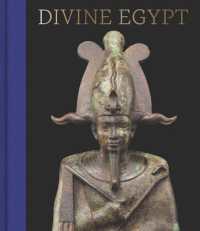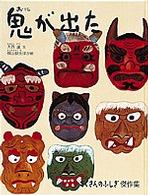- ホーム
- > 洋書
- > 英文書
- > History / World
Full Description
Arabic and its Alternatives discusses the complicated relationships between language, religion and communal identities in the Middle East in the period following the First World War. This volume takes its starting point in the non-Arabic and non-Muslim communities, tracing their linguistic and literary practices as part of a number of interlinked processes, including that of religious modernization, of new types of communal identity politics and of socio-political engagement with the emerging nation states and their accompanying nationalisms. These twentieth-century developments are firmly rooted in literary and linguistic practices of the Ottoman period, but take new turns under influence of colonization and decolonization, showing the versatility and resilience as much as the vulnerability of these linguistic and religious minorities in the region.
Contributors are Tijmen C. Baarda, Leyla Dakhli, Sasha R. Goldstein-Sabbah, Liora R. Halperin, Robert Isaf, Michiel Leezenberg, Merav Mack,
Heleen Murre-van den Berg, Konstantinos Papastathis, Franck Salameh, Cyrus Schayegh, Emmanuel Szurek, Peter Wien.
Contents
Preface
Heleen Murre-van den Berg
Note on Transcription
Notes on Contributors
1 Arabic and its Alternatives: Language and Religion in the Ottoman Empire and its Successor States
Heleen Murre-van den Berg
2 Vernacularization as Governmentalization: the Development of Kurdish in Mandate Iraq
Michiel Leezenberg
3 "Yan, Of, Ef, Viç, İç, İs, Dis, Pulos ...": the Surname Reform, the "Non-Muslims," and the Politics of Uncertainty in Post-genocidal Turkey
Emmanuel Szurek
4 "Young Phoenicians" and the Quest for a Lebanese Language: between Lebanonism, Phoenicianism, and Arabism
Franck Salameh
5 "Those Who Pronounce the Ḍād": Language and Ethnicity in the Nationalist Poetry of Fuʾad al-Khatib (1880-1957)
Peter Wien
6 Arabic and the Syriac Christians in Iraq: Three Levels of Loyalty to the Arabist Project (1920-1950)
Tijmen C. Baarda
7 Awakening, or Watchfulness: Naum Faiq and Syriac Language Poetry at the Fall of the Ottoman Empire
Robert Isaf
8 Global Jewish Philanthropy and Linguistic Pragmatism in Baghdad
Sasha R. Goldstein-Sabbah
9 Past Perfect: Jewish Memories of Language and the Politics of Arabic in Mandate Palestine
Liora R. Halperin
10 United by Faith, Divided by Language: the Orthodox in Jerusalem
Merav Mack
11 Arabic vs. Greek: the Linguistic Aspect of the Jerusalem Orthodox Church Controversy in Late Ottoman Times and the British Mandate
Konstantinos Papastathis
12 Between Local Power and Global Politics: Playing with Languages in the Franciscan Printing Press of Jerusalem
Leyla Dakhli
13 Epilogue
Cyrus Schayegh
Index







